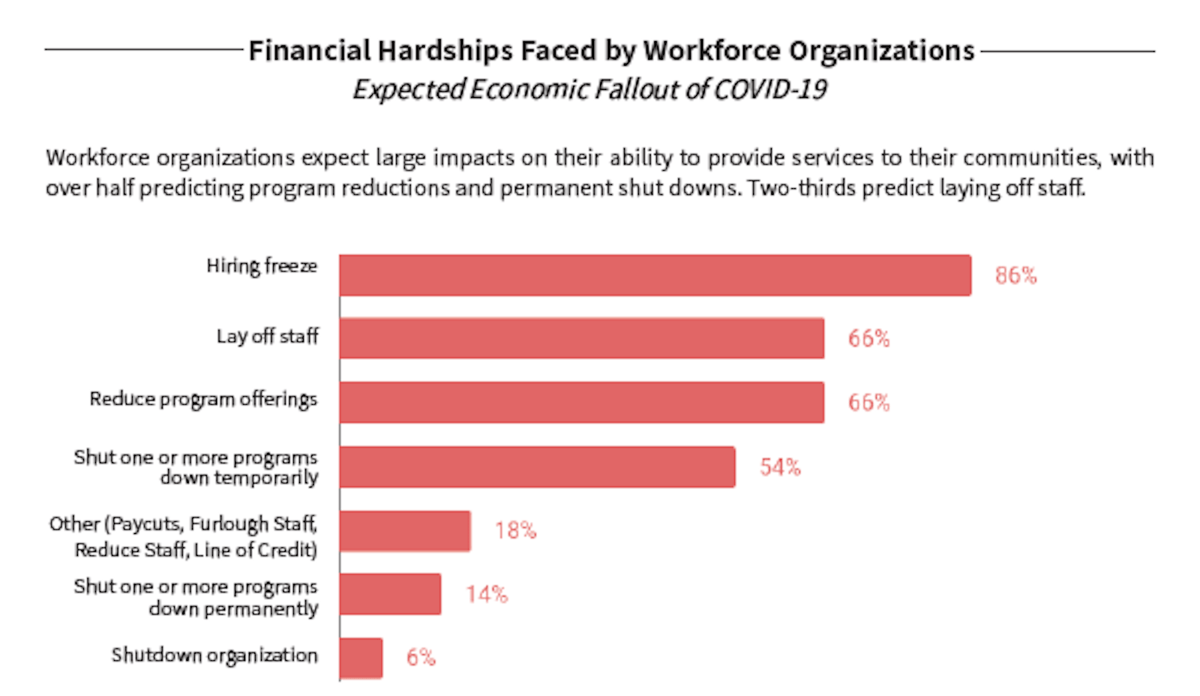By Jason Cohen
New city data suggests that workforce training and nonprofit organizations that provide these services could be in trouble in a post-COVID-19 world.
According to numbers released by the NYC Employment and Training Coalition (NYCETC) and the Human Services Council (HSC) based on surveys of their collective memberships in partnership with HR&A Advisors, those nonprofits are facing steep budget cuts that put the Bronx’s economic recovery at risk.
“New York’s economic future rests on these organizations and the services they provide, full stop,” said Michelle Jackson, acting executive director of the Human Services Council. “Cuts might help balance the budget today, but they will stifle our efforts to put New Yorkers back to work and get our economy moving again in the weeks, months, and even years to come. Now is the time to invest in New Yorkers. We simply cannot afford to be shortsighted when the future of our economy is at stake.”
The City Council districts in the Bronx with the most workforce programs are in the South Bronx, specifically Councilman Rafael Salamanca, which is number three overall and Councilwomen Diana Ayala and Vanessa Gibson.
The following are key takeaways from the data:
- Significant impacts expected on services: Nearly two-thirds of organizations predict program reductions and permanent shutdowns and even more than 70 percent predict staff layoffs, which would compound the city’s unemployment crisis.
- Unequal impact: Workforce training program clients are overwhelmingly 89 percent people of color, following the trend of job losses largely 68 percent affecting people of color.
- With help, nonprofits can adapt: Three-quarters of organizations are providing different services in light of COVID-19 or could do so, but fewer than half already have access to online learning software.
As largely government-funded workforce organizations prepare to take center stage in the economic recovery, they face short- and long-term threats from the 2021 budget at the state and city levels. This could force organizations to cut programming, lay off staff, and even shut down. The loss of these nonprofits would disproportionately harm communities of color, who have been hit particularly hard by COVID-19 and could be left behind by the recovery.
“The future of work is now,” said Jose Ortiz, Jr., executive director of the NYC Employment and Training Coalition. “We have a responsibility to empower the hundreds of thousands of low-income and marginalized New Yorkers that are reeling from the double shock of a health and unemployment crisis that is compounded by generational poverty and disinvestment, placing them at a significant disadvantage in their efforts to access jobs. In order to support New Yorkers and businesses through the biggest economic challenge of their lifetime, workforce development organizations require equal support, partnership, and innovation from public and private partners.”
Editor’s note: This story first appeared on BXTimes.com





























